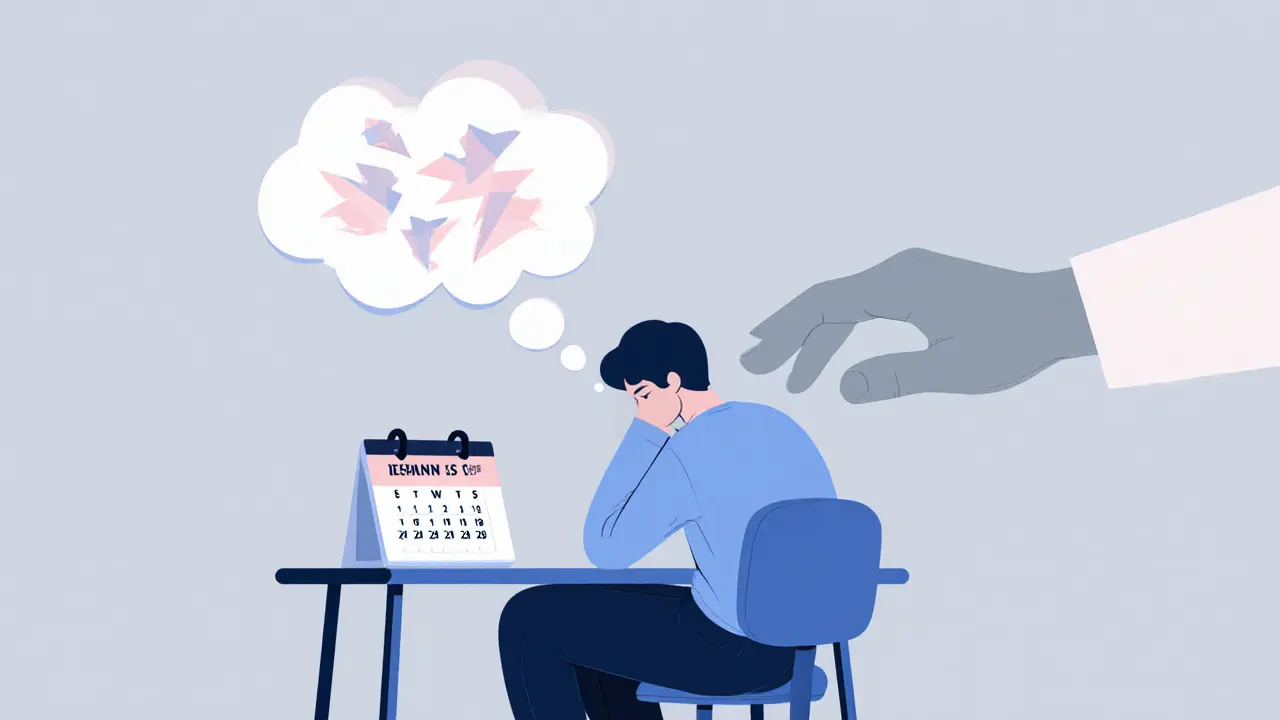Krizová podpora – Co potřebujete vědět
When you are in a sudden mental health crisis, krizová podpora, systém okamžité pomoci a podpory pro osoby v akutním psychickém stresu. Also known as nouzová psychologická asistence, it connects you with professionals, helplines and safe spaces when you need it most.
One of the core components of krizová podpora is krizová centra, fyzická místa, kde můžete osobně vyhledat odbornou pomoc 24/7. These centers often collaborate with linka důvěry, telefonické služby, které poskytují anonymní a okamžitý rozhovor s krizovým poradcem. Together they create a network that covers the whole territory and ensures that nobody stays alone in a difficult moment.
Jak funguje okamžitá pomoc
In practice, crisis support follows a simple flow: you notice a strong emotional overload, you reach out to a helpline or a centre, and a trained professional evaluates the situation. This evaluation leads to one of three actions: (1) stabilisation through conversation, (2) referral to akutní psychická pomoc, intenzivní zásahy, které mohou zahrnovat hospitalizaci nebo krizovou intervenci, or (3) a safety plan for the following days. The whole process hinges on quick contact – the faster you call, the easier it is to prevent escalation.
Semantic triples clarify the relationships: Krizová podpora zahrnuje krizová centra. Krizová podpora vyžaduje okamžitý kontakt s linkou důvěry. Akutní psychická pomoc ovlivňuje úspěšnost krizové podpory. These connections show why each element matters and how they reinforce each other.
Many people wonder whether they really need to call a helpline when they feel sad. The truth is that short-lived low mood is normal, but when thoughts of self‑harm, panic attacks or overwhelming anxiety appear, the safest route is to use the crisis network. Even if you are unsure, a quick call can clarify whether professional help is necessary.
In the Czech Republic, the most widely known crisis line is the 116 111 linka důvěry, operating nonstop and free of charge. It is staffed by volunteers and psychologists trained to de‑escalate tense situations. If you prefer face‑to‑face contact, the nearest krizové centrum is listed on municipal websites and often located in hospitals or community centres.
Besides the obvious emergency services, there are specialised supports for specific groups. For example, students can call university crisis hotlines, while veterans may access military mental health programmes. These sub‑services are part of the broader crisis support ecosystem and illustrate how the system adapts to different needs.
When you decide to seek help, prepare a short note with your current feelings, any recent triggers, and contact details of a trusted person. This preparation speeds up the assessment and shows the professional that you are willing to collaborate. Even if you feel embarrassed, remember that crisis workers are used to hearing all kinds of stories and will prioritize your safety above everything else.
Finally, after the immediate crisis passes, most centres offer follow‑up appointments, referrals to long‑term therapy, or self‑help resources. The goal is to move from emergency stabilization to lasting recovery. Keeping the contact information of your chosen centre handy makes the transition smoother.
Below you will find a curated list of articles that dive deeper into each part of the crisis support system – from how to prepare for your first call, to detailed guides on crisis centres across the country, and practical tips for maintaining mental wellbeing after the storm. Explore the collection and equip yourself with the knowledge that can make a real difference when you or someone you know faces a mental health emergency.
- Brian Omwaka
- 0
Jak přežít čekání na psychologickou pomoc: praktické dočasné strategie bezpečí
Praktické tipy a ověřené dočasné strategie, které pomohou zvládnout čekání na psychologickou pomoc a udržet duševní stabilitu.
Číst více